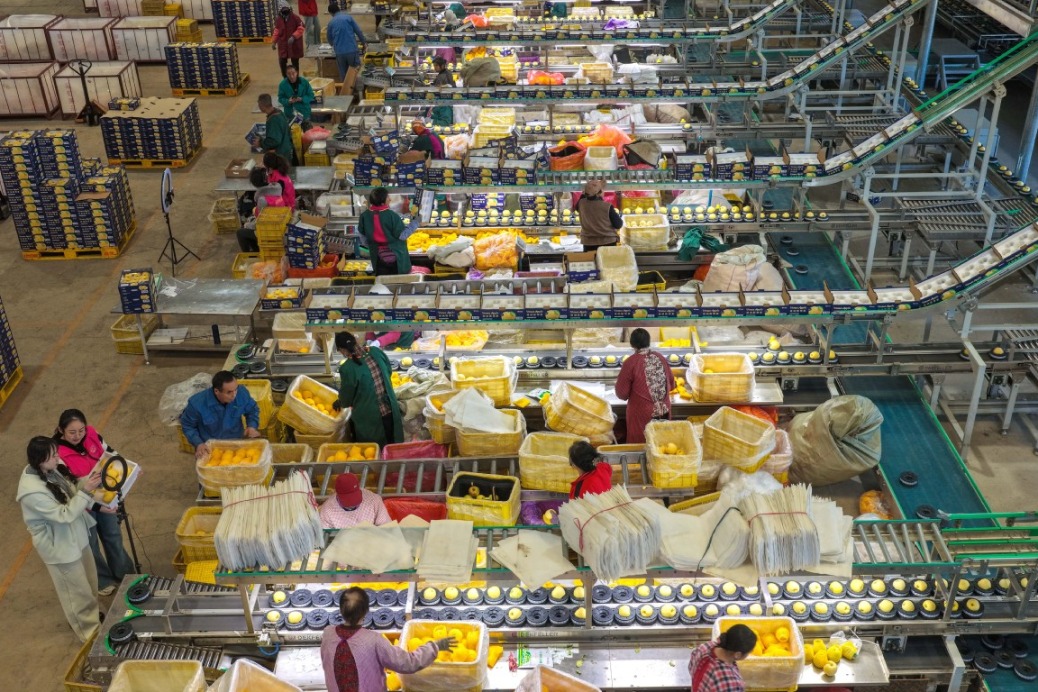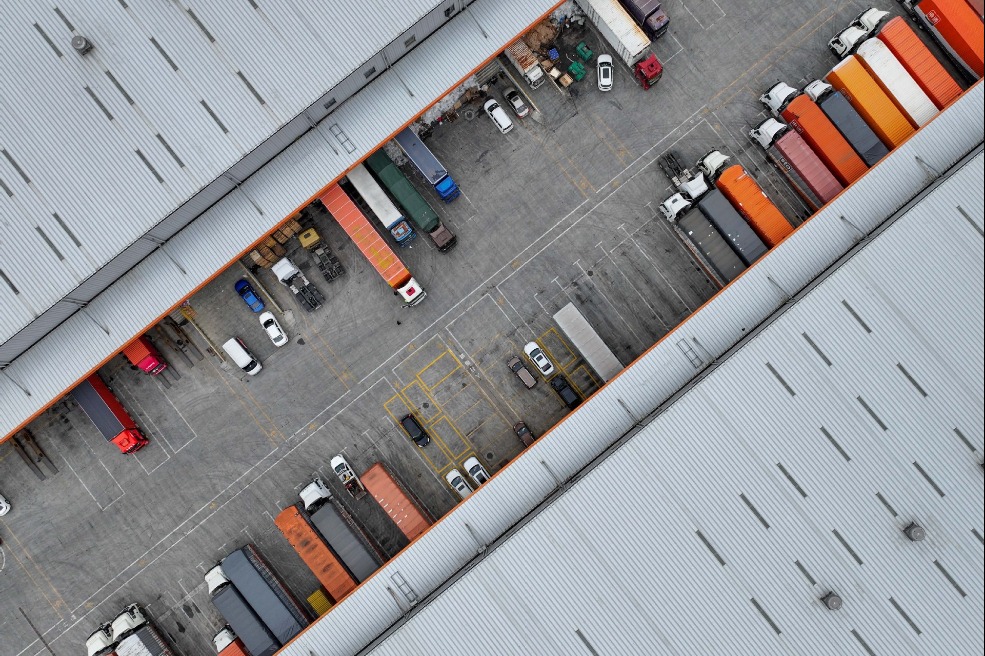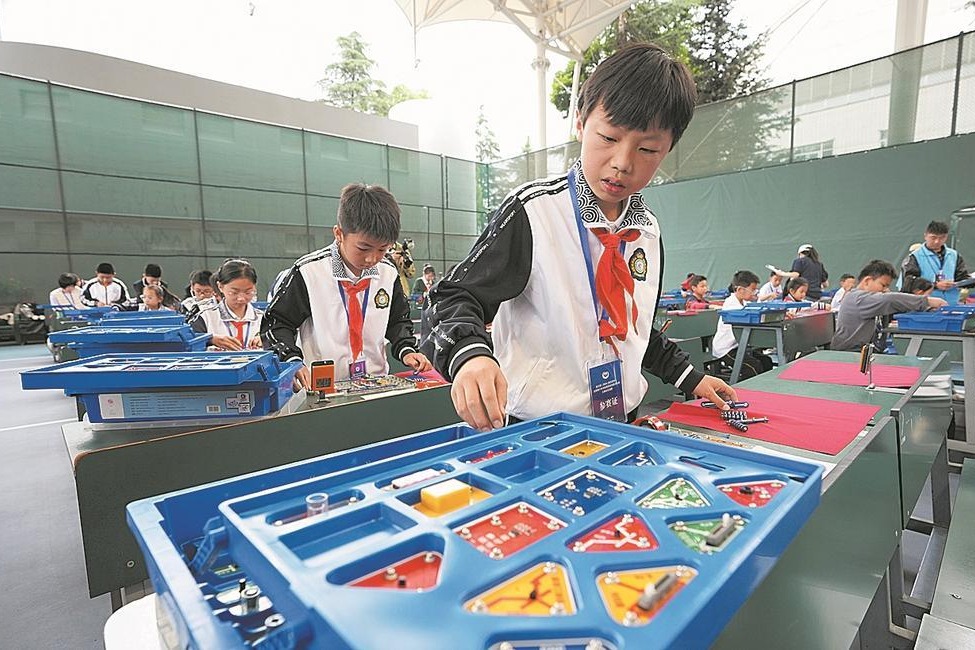Superior foreign aid, courtesy of China

Western countries link money to politics, but that approach has not proved effective in cultivating long-term success
Most African people I know or have talked with agree that China has opened a new way of providing assistance to the continent over the past six decades. Different from other kinds of aid, the railways, roads, ports and hospitals built by the Chinese in Africa bring hope and are full of positive energy for the continent and the whole world.
Sharing similar historical experiences and facing its own development challenges, China started providing friendly and sincere help to the African people about 60 years ago, when its own people still lived in poor conditions. Since 1949, China had provided a total of 600 billion yuan ($91 billion; 76 billion euros; £67 billion) in aid to 166 nations and international organizations, and dispatched more than 600,000 aid workers, among whom more than 700 have lost their lives. In China's foreign aid practice, treating others equally, showing mutual respect to people and seeking no personal gain are basic norms that have always been practiced by the Chinese. The Chinese people believe that all aid should be of mutual benefit, rather than just charity from a single side. That helps the Chinese people win the trust and respect of their friends from the heart.
On the other hand, Western countries have begun to link aid to the internal affairs of the recipient countries since a speech by French president Francois Mitterrand in 1990 in which aid was used as a threat to force recipient countries to accept a series of political requirements.

Democratic principles are copied mechanically and applied slavishly in the recipient countries. The aid is actually bait.
In her book Dead Aid, Zambian economist Dambisa Moyo argues that assistance from Western countries has not played its due role. Sub-Saharan Africa has received hundreds of billions of dollars in aid from the West, but most of the countries in the region fell into a cycle of corruption, disease, poverty and external dependence.
Many African people, including Moyo, believe that the coverage of China's foreign aid is wider. Chinese aid does not have any political requirements, nor does it interfere with the recipient nations' internal affairs. The main objective of China's aid is to meet the development needs of the local people. China shows full respect to those recipient countries' right to choose their own development roads, unlike the Western aid model.
From December 1963 to February 1964, during his visits to Africa, former Chinese premier Zhou Enlai proposed eight principles for providing foreign aid. He stated clearly that the goal of Chinese foreign aid is to enable the recipient countries to develop independently, and to provide technical assistance to ensure that the recipient countries can fully grasp the necessary technologies.
China has provided its best equipment and facilities to Africa. Its assistance is sincere and selfless.
In 2014, when the Ebola virus raged in Africa, China took the lead to provide international aid. Its four rounds of emergency humanitarian aid to the continent have provided a lot of equipment and supplies. At the most dangerous moment, many Chinese medical teams joined with African colleagues on the front line of the epidemic. Their work has received high praise from the international community and the African people.
In order to ensure that aid is effective, China paid attention to the cultivation of local talent. It has built more than 120 education facilities and schools in Africa since 2000. More than 80,000 African people have received training in China, and the number of local training professionals is countless. Through training, more Africans can share China's development experience.
China is the largest developing country in the world. It is also an emerging economy that has made great achievements in development. This dual identity requires it to consider both justice and benefit while dealing with other countries, and put justice before benefit.
As a part of the South-South Cooperation effort, China should do according to its abilities in the process of providing aid to other countries, and gain a mutual benefit and win-win result. In addition, China has the responsibly, courage and ability to give more assistance to other countries that yearn to develop their economies and thus take cooperation to a new level. China will continue to expand and share its experience and provide opportunities for other developing countries, combine its own interests with the common interests of others and together create a community with a common destiny.
Chinese foreign aid has a long history. However, in the past the channels of aid were relatively simple and the field was relatively limited. In recent years, the cooperation between China and other developing countries has been continuously enriched, and the scale has expanded rapidly. China's foreign aid has expanded to many fields such as economics, society, people's livelihoods, culture and peace.
China's aid funds have been put into sectors including infrastructure, manufacturing, agriculture, environmental protection, education and healthcare of other developing countries.
In addition to bilateral channels, China is increasingly involved in multilateral development assistance initiatives proposed by the United Nations Development Programme, the UN Industrial Development Organization and the UN Population Fund. China is increasingly using regional cooperation systems and platforms such as the Forum on China-Africa Cooperation and the China-ASEAN Summit to strengthen regional discussions and negotiations with recipient countries.
At China's urging, the Asian Infrastructure Investment Bank, BRICS New Development Bank and other new multilateral financing platforms came onto the stage. China's foreign aid has opened up a new chapter.
The author is director of The Center of Africa Studies of China Foreign Affairs University. The views do not necessarily reflect those of China Daily.
(China Daily Africa Weekly 09/22/2017 page9)
Today's Top News
- House committee's report not conducive to steadying Sino-US economic and trade ties: China Daily editorial
- Unified national market resilience reinforcer: China Daily editorial
- Huge potential seen in China-Northern Ireland trade and investment cooperation
- Xi encourages young sinologists to bridge China, the world
- Xi, president of Comoros exchange congratulations on 50th anniversary of ties
- Luxury leasing market gains traction in HK






























